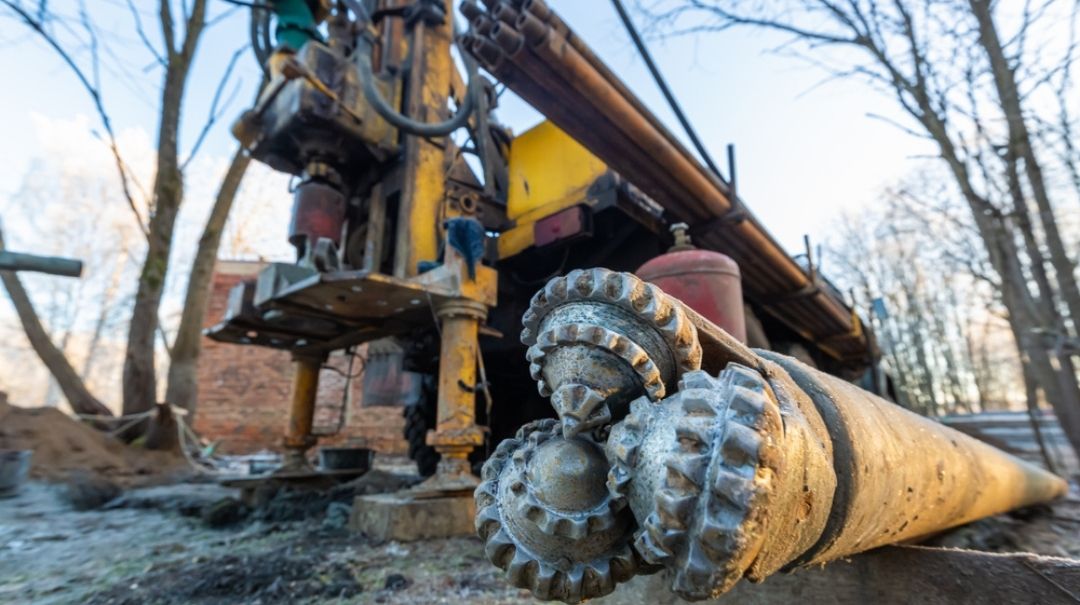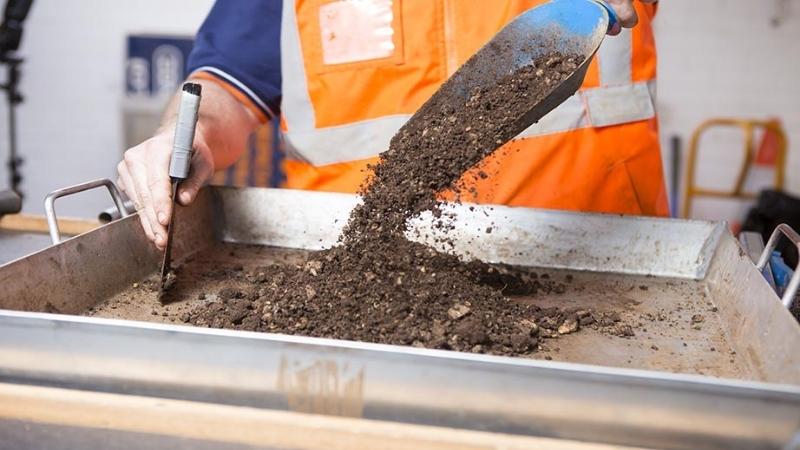Why All About Geotechnical Engineering Matters in Today's Infrastructure Growth
Why All About Geotechnical Engineering Matters in Today's Infrastructure Growth
Blog Article
The Relevance of Geotechnical Engineering in Addressing Ecological Obstacles and Enhancing Construction Safety
Geotechnical engineering offers as a foundation in the intersection of ecological stewardship and construction safety, supplying essential understandings into the actions of soil and rock under numerous problems. By carrying out critical site investigations and customized reduction procedures, geotechnical designers play an essential role in safeguarding both human lives and ecological stability.

Role of Geotechnical Engineering
Geotechnical engineering plays an essential role in the design and building of framework by addressing the habits of dirt and rock materials under various conditions. This area of engineering is important for understanding the interaction between structures and the ground, that includes figuring out the load-bearing ability of dirt, analyzing stability, and forecasting possible negotiation or failure.
Geotechnical designers are in charge of carrying out site examinations, which include sampling and testing dirt and rock to gather data on their chemical and physical buildings. This info is vital for creating structures, retaining walls, and other earth-retaining frameworks that guarantee safety and long life. Additionally, geotechnical engineering informs the option of ideal construction techniques and products, consequently decreasing dangers connected with dirt actions.
Moreover, the combination of geotechnical engineering principles right into city preparation and environmental monitoring is important for resolving challenges such as ground contamination and groundwater monitoring. By understanding geotechnical aspects, designers can create lasting options that improve the strength of facilities versus all-natural threats, while likewise promoting environmental stewardship. Eventually, the role of geotechnical design is essential for attaining risk-free, long lasting, and eco aware construction techniques.
Soil Erosion Mitigation
Soil disintegration positions a substantial hazard to both ecological stability and framework honesty, influencing about 24 billion lots of fertile soil lost yearly worldwide. This sensation is exacerbated by factors such as logging, urbanization, and poor agricultural practices. Geotechnical engineering plays a pivotal role in developing reliable soil disintegration mitigation methods that secure both the environment and construction jobs.
One method entails the application of erosion control approaches such as plant life planting, which maintains soil with root systems. Additionally, the building of maintaining walls and terraces can successfully minimize surface runoff and shield at risk locations from erosion. Correct water drainage layout is likewise crucial; it lessens water accumulation and guides excess runoff far from crucial structures.
Additionally, geotechnical designers utilize dirt stabilization techniques, such as the application of geotextiles and eco-friendly mats, to improve soil communication and prevent deterioration - geotechnical companies in south africa. Regular surveillance and evaluation of erosion-prone sites allow timely treatments, guaranteeing lasting sustainability. By incorporating these techniques, geotechnical design not only mitigates the influences of soil disintegration but also adds to the strength of facilities against environmental difficulties, inevitably promoting a much safer and more sustainable developed setting
Groundwater Security Methods
Groundwater functions as a vital source for alcohol consumption water, farming, and industrial processes, making its defense vital for ecological sustainability and public health. Efficient groundwater security approaches are vital in reducing contamination risks and making sure the durability of this source.

Regular surveillance of groundwater quality is also necessary, enabling very early detection of contamination sources and facilitating timely remediation efforts. Employing innovative modern technologies, such as geophysical studies and remote picking up, aids in recognizing prospective hazards to groundwater reserves.
In addition, public education and stakeholder interaction are essential, cultivating community assistance for groundwater security campaigns. all about geotechnical engineering. By integrating regulatory procedures, technological developments, and area participation, we can create a comprehensive structure that safeguards groundwater resources while advertising sustainable growth and construction techniques
Landslide Danger Management
Landslides posture considerable threats to both human security and framework, making effective danger monitoring techniques essential. Geotechnical engineering plays a critical role in determining, assessing, and mitigating landslide risks. A detailed understanding of incline security, soil mechanics, and hydrology is crucial for creating efficient threat management plans.
The primary step in landslide risk administration involves complete site investigations, which include geological mapping and soil screening. These examinations aid engineers assess the possibility for landslides by identifying important factors such as slope angles, soil composition, and water material. Using sophisticated modern technologies such as remote sensing and geophysical surveys can improve the precision of these assessments.
When threats are identified, suitable reduction actions can be implemented. These might consist of design remedies such as Home Page retaining walls, drainage systems, and slope stabilization strategies. Moreover, keeping track of systems need to be developed to detect indications of ground activity and changes in water levels, enabling for aggressive treatments.

Enhancing Building Safety And Security
Building and construction websites often present a myriad of risks that can endanger employee safety and security and project stability. Geotechnical design plays an essential role in enhancing building safety and security by giving crucial understandings into subsurface conditions. Via thorough dirt and rock analysis, geotechnical engineers can identify potential risks, such as soil instability, groundwater problems, and seismic susceptabilities, which might jeopardize the security of building activities.
Applying geotechnical services, such as appropriate structure layout and using maintaining frameworks, alleviates these dangers dramatically. These solutions not only guarantee the stability of the structures being developed but additionally develop a safer working environment for building and construction workers. Additionally, rigorous surveillance and evaluation of site problems throughout the building process are important. Utilizing sophisticated technologies like ground-penetrating radar and inclinometer systems allows real-time data collection, permitting prompt treatments when threats are identified.
Furthermore, fostering a society of security through training and adherence to developed safety and security protocols additionally boosts construction site safety. By incorporating geotechnical proficiency right into the planning and execution stages, building projects can achieve higher safety requirements, ultimately shielding workers and ensuring effective project conclusion.
Final Thought
In final thought, geotechnical engineering serves as an essential technique in dealing with ecological difficulties and advertising building and construction security. With effective dirt erosion mitigation, groundwater security approaches, and landslide danger management, geotechnical designers add to the advancement of resilient framework.
Geotechnical engineering offers as a cornerstone in the crossway of ecological stewardship and construction security, supplying important understandings into the habits of dirt and content rock under various conditions. Geotechnical design educates the selection of proper building and construction techniques and products, thereby decreasing risks connected with dirt habits.
Geotechnical design plays an essential duty in establishing reliable dirt erosion reduction techniques that secure both the setting and construction jobs.
In addition, geotechnical designers use soil stabilization strategies, such as the application of geotextiles and eco-friendly floor coverings, to boost dirt cohesion and avoid deterioration. Through extensive dirt and rock evaluation, geotechnical engineers can recognize possible risks, such as soil instability, groundwater problems, and seismic susceptabilities, which useful reference might endanger the safety and security of construction activities.
Report this page